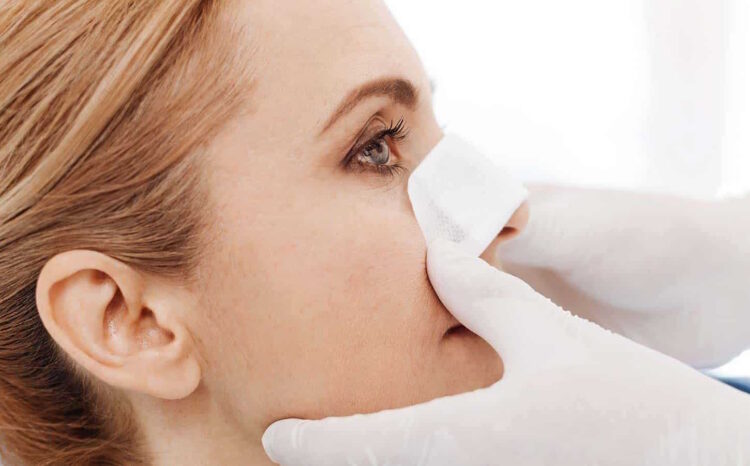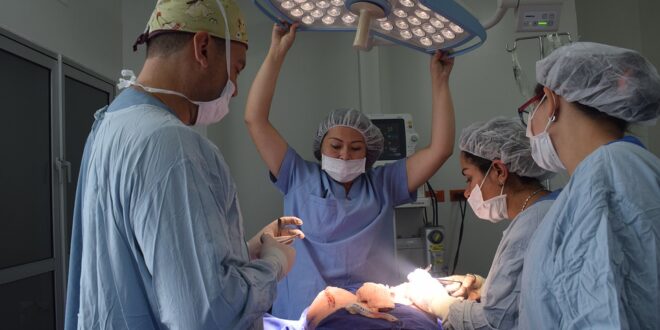We all know that cosmetic surgery offers the chance to change your face and body in amazing ways. However, is it truly possible for plastic surgery to offer health benefits too?
Over the years, research has shown that cosmetic surgery is anything but vanity based. It offers long-term physical, psychological and aesthetic benefits too.
Cosmetic enhancements are generally undertaken to improve physical appearance. Some want to combat the effects of gravity. Others want to correct the effects of a trauma or injury. There are also major life events such as weight loss and pregnancy. Whatever the reasons, cosmetic surgery can make a tremendous physical difference.
According to DrMagnusson.com.au, feeling better about how you look tends to spill over into all other areas of your life. Some of which are related to your health too.
Can Cosmetic Surgery Better Your Health?

There is more to health than just the physical aspect. Health also refers to your emotional, mental and even social health. When we consider that there’s more than just one type of health, its easier to understand how cosmetic surgery can be beneficial.
Let’s take a closer look at a few of the main health-related benefits of plastic surgery:
1. Alleviates chronic pain
Living with back, neck and shoulder pain is no picnic. By simply eliminating excess tissue, skin and fat, patients can finally experience less discomfort. Exercise and sleep also become a lot easier when you aren’t experiencing chronic pain. Some of the procedures that deliver these results include breast reduction surgery, body lifts and tummy tucks. When you’re in less pain, you experience a better quality of life.
2. Encourages long-term changes

Patients who lose a significant amount of weight can experience long-term health benefits after cosmetic surgery. Patients who need to have excess skin, tissue and fat removed to complete their weight loss goals want to maintain the results. This means that healthy lifestyle changes are necessary. Patients who adopt healthier lifestyles will reap the long-term physical and emotional benefits.
3. Improves quality of life
Certain plastic surgery procedures will leave patients with lasting benefits that boost their quality of life. Blepharoplasty removes excess fat and skin from the eye area. Patients who undergo blepharoplasty can finally experience better vision. A deviated septum can stop you from experiencing deep, restorative sleep. Patients who were struggling with breathing difficulties for years can finally experience better sleep following rhinoplasty. There are a number of procedures that are hardly cosmetic in nature at all. They’re designed to correct issues that place unnecessary strain on a patient’s life.
4. Increases self-esteem and happiness

A boost in self-confidence and happiness can affect both your personal and professional life. When you feel more confident, you automatically approach decisions and situations with more confidence too. Being able to wear the clothes you love and not receiving uncomfortable stares can all have a positive effect. Overall, this positive mental boost can have far-reaching effects that have nothing to do with vanity. For example, women who have lived with overly large breasts for years can finally feel comfortable in their own skin. A patient who had a hump on the bridge of their nose can now stop feeling embarrassed about unwanted glances.
5. Decreased risk of cardiovascular concerns and diabetes
There are a number of risks associated with carrying excess fat, including an increased risk of diabetes and heart problems. By undergoing body contouring procedures, patients automatically reduce their risk of developing certain health problems. Examples of body contouring procedures include thigh lifts, liposuction and tummy tucks.
Preparing for Cosmetic Surgery
Once you make the decision to undergo plastic surgery, you will need at least a month to prepare. Below is a general timeline that you can use to guide you during the weeks leading up to your surgery. Always follow your surgeon’s specific instructions before anything else.
4 Weeks Before
If your surgeon wants to perform any additional tests, it will be done during this period. This can include physical examinations and bloodwork. It’s essential that your surgeon rule out the potential for any unnecessary complications at least a month before your procedure. You should also use this time to ask your surgeon any questions. You should feel comfortable and informed on the day of your procedure. Experienced surgeons will always tell you exactly what to expect before, during, and after your surgery though.
3 Weeks Before
During this time, you are encouraged to stop smoking and drinking as this can hamper your recovery. Smoking is particularly harmful because it has a direct effect on your blood flow and arteries, which are essential to a healthy recovery. You should also start stocking up on anything you’ll need for your recovery, including food, medication and other essential aftercare supplies.
2 Weeks Before

You may need to start making some adjustments to any medications and supplements you’re currently taking at this point. For example, large doses of vitamin E, anti-inflammatory medications and anti-coagulants can’t be taken this close to your surgery. This is because certain medications can cause additional bruising and swelling. Your surgeon will provide you with specific guidance on this.
1 Week Before
During this time, you should decrease your intake of processed foods or anything high in sodium. Stick to fresh fruits, vegetables and lean protein. Stay as hydrated as possible too. Fill the prescription for any medication that you’ll require during your recovery. You should also start setting up your recovery area so that everything is ready for you once you get home. This includes additional pillows, books and anything you need to relax and recover. Double check that you have someone who can collect you from the hospital and spend a day or two with you after surgery. If you have children, make sure that someone can assist you with them for at least a week.
After your surgery, you will be given specific aftercare instructions that you should follow as closely as possible if you want the best results. When you achieve a favorable outcome, you increase the chances of experiencing positive health benefits too.
 Hi Boox Popular Magazine 2025
Hi Boox Popular Magazine 2025



